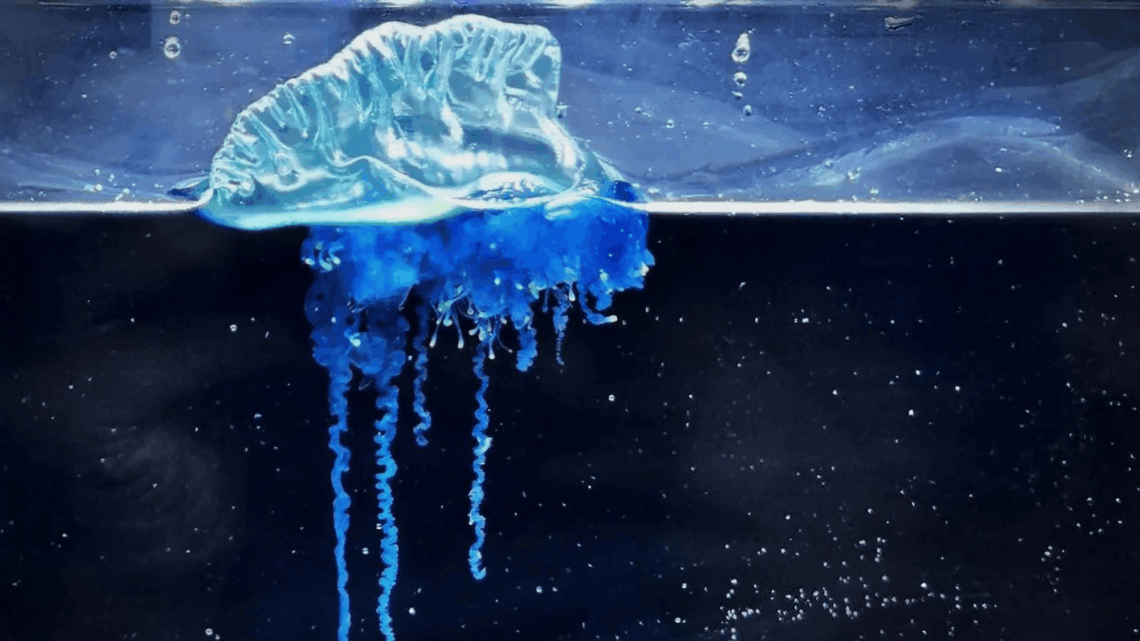In the cold waters off northeast Japan, a group of students found a Portuguese man o’ war. It shouldn’t have been there. It doesn’t make any sense why it would be there. It turned out to be an entirely new species, now named the Physalia Mikazuki, or the “crescent helmet man o’ war,” after the samurai lord Date Masamune, who famously had a massive crescent moon shape adorning his helmet.
The discovery was detailed in the journal Frontiers in Marine Science. One of the study’s authors, Yoshiki Ochiai, says the creature was discovered by accident while working around Sendai Bay. It’s a rare find, so of course, he did what any esteemed scientific researcher would do: he scooped it into a Ziploc bag and delivered it to the lab via scooter.
It was there that his fellow researchers figured out that it wasn’t the usual Physalia utriculus common to southern Japan, but something new. That led to a whole new question: how did they not know about this thing before?
Until recently, scientists thought the Portuguese man o’ war was just one global species of floaty nightmare. Then they found out it’s actually four, with each calling their own slice of the earth home. DNA analysis and old-school anatomy comparisons revealed that P. mikazuki had likely been wandering Japan’s warmer southern waters for ages, but only recently began floating north.
The reason for its northward journey falls squarely on the shoulders of ocean currents and climate change. Warming waters are disrupting sea life all around the world, creating all-new migration patterns that researchers are just beginning to notice.
The Kuroshio Current, Japan’s version of the Gulf Stream, has been creeping northward as sea surface temperatures rise. Using computer simulations, the researchers traced a path leading straight from Sagami Bay to where the new species was found.
On one hand, it’s great that we’re making discoveries about the mysteries of the ocean. On the other hand, it’s a gigantic red flag that lets us know climate change isn’t some far-off, distant problem; its effects are happening right now, before our eyes.
It may not seem like a big deal that a Portuguese man o’war is showing up in places that it didn’t use to, but think about it for a second: it preys on fish larvae, meaning it might disrupt the new biomes it calls home, not to mention the species is pretty well known for delivering nasty stings to beachgoers.
Climate change is rewriting the rules of the ecosystem right in front of us. If we don’t act, it’s going to rewrite nearly everything we know about how the world works, and we (a notoriously slow-to-react species) are going to have a hell of a time keeping up with it all.
The post There’s a New Portuguese Man O’ War Species Named After a Samurai Warrior appeared first on VICE.




